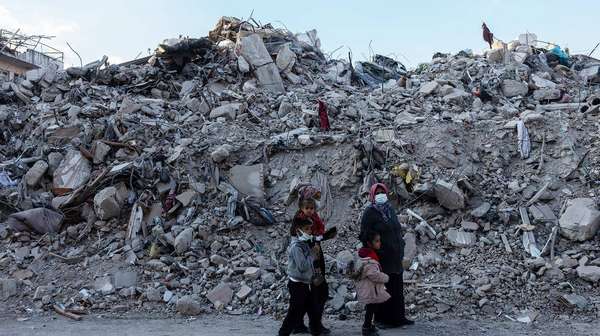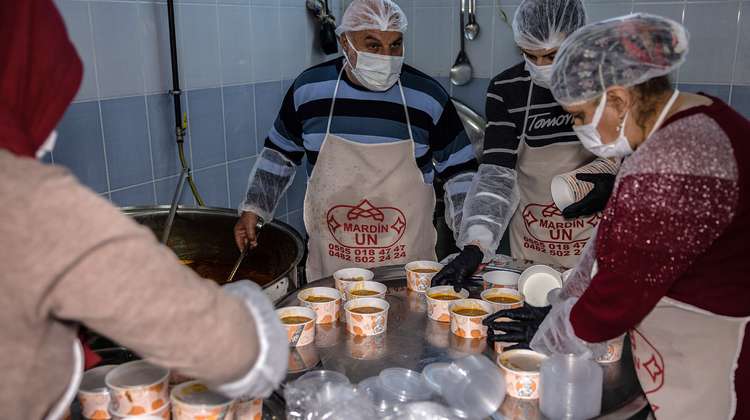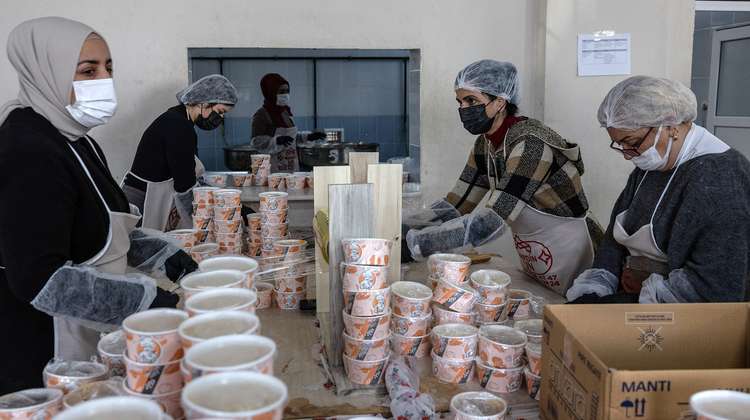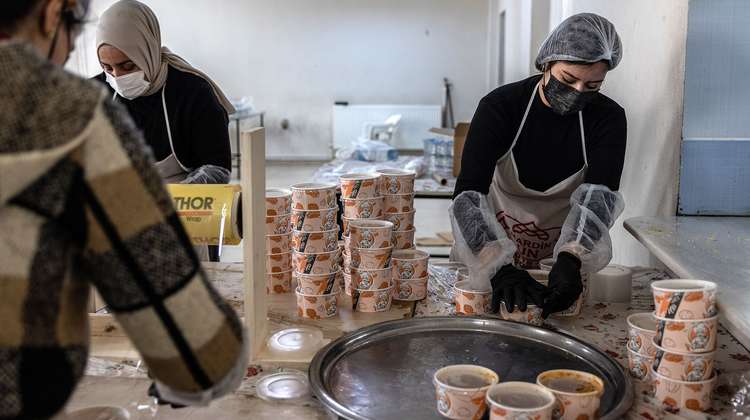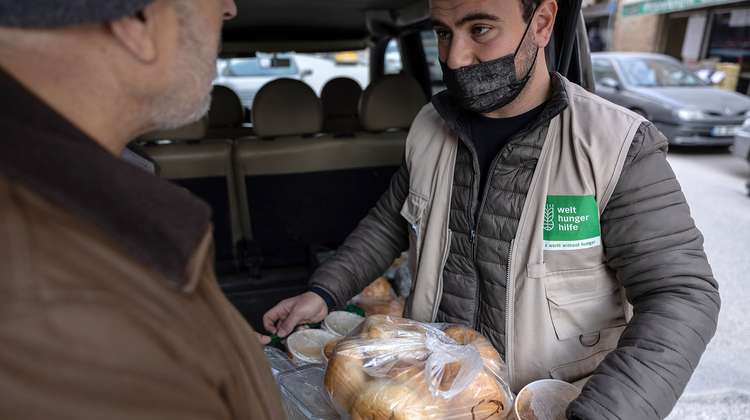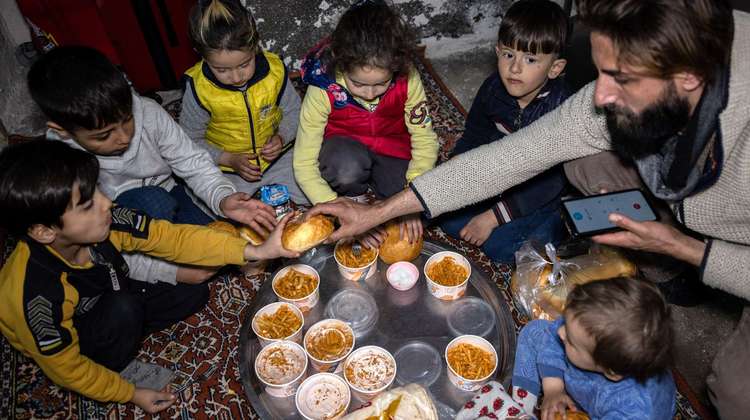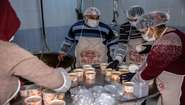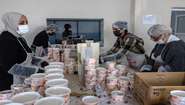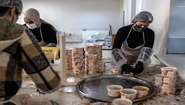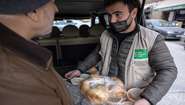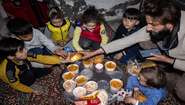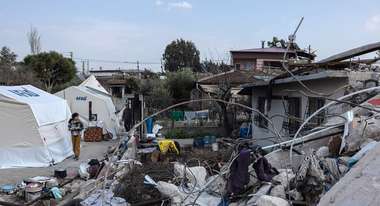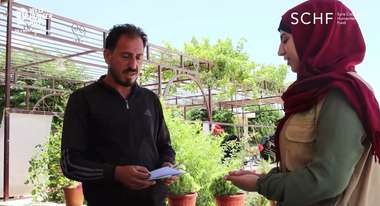Millions of people require aid after several earthquakes on February 6, 2023.
Daily meals for earthquake survivors in Türkiye
In two cities in Türkiye, women cook daily for thousands of survivors who fled there after the earthquakes.

"It was the worst minute of our lives! We tried to leave the house and run downstairs from the third floor, but during the quake we couldn't unlock our door; the lock was stuck. We were stuck. I thought the ceiling would collapse and bury us all under it," Ali AlHassan describes. He and his family were lucky; they survived the disaster. He will never forget the seconds when the earth shook. More than 50,000 people died in the earth tremors that shook the Syrian-Turkish border region in early February 2023.
The earth has settled, but the distress remains. More than 13 million people have been affected in one form or another by the consequences of the earthquakes. Many thousands are homeless and traumatized; they have lost their livelihoods and have no secure access to water and food. So, people are flocking to places where they hope to find aid. Help is coming, but the task is daunting.
From an agricultural cooperative to a soup kitchen
This situation demonstrates people's capacity to help their neighbors as well as themselves. This is precisely the case with the women's cooperative in the Şahinbey district (Gaziantep province), which receives support from Welthungerhilfe (WHH). The project brings together women of different nationalities and languages; in training sessions, they learn how to grow, process, and market vegetables and fruit. As a result, the cooperative produces food for the regional and national markets and secures an income for its members. This income is crucial for women who fled Syria during the civil war especially, as they struggle to find paid work in Türkiye.
The earthquakes also hit the villages where the women live – Gaziantep province is one of the most devastated areas. But despite their worries, it was clear to them: We must help those worse off than ourselves. And so, an agricultural project temporarily became a humanitarian project – and a farmers' cooperative became a soup kitchen.
Every morning, the cooperative prepares meals for families that need food. To cope with the volume of work, they have also hired two cooks. The women mostly buy local food but also use their own produce. In the afternoons, they distribute the food in emergency shelters and camps. The cooperative serves between 2,000 and 3,000 meals a day. There is often soup, a main course, a side dish, bread, and water.
Successful project launched in second city
The RTL Foundation and WHH are supporting the women of Şahinbey in reorienting their efforts. Another soup kitchen was founded in Mardin, further east. This is where Ali AlHassan lives with his family. Thousands of survivors found refuge here after the earthquakes because the city stands on solid rock and therefore suffered no damage. Here they have a safe roof over their heads and, thanks to the commitment of the women's cooperative, something to eat every day.
No one can say how long it will take for the situation to return to some form of normalcy – until everyone has housing, until the supply chains for food and everyday goods are functioning again, and until a social safety net is rewoven. Until then, the people in the disaster region are dependent on emergency aid – from both their neighbors and the international community.
Reporter Stefanie Glinski spoke with Ali AlHassan during her visit to the region.
How WHH is helping earthquake survivors in Türkiye and Syria
- The soup kitchens, born out of a women's cooperative, distribute thousands of meals a day in Gaziantep and Mardin in Turkey.
- In Gaziantep, Türkiye, we distribute ready-made meals, baby diapers, hygiene products and household items.
- In Hatay and Diyarbakır provinces, we distribute ready-made meals, hygiene items, winter clothing and tents.
- We are active in Azaz and Idlib in northwestern Syria in cooperation with our partner organizations SARD, SHAFAK and PAC. We distribute bread, ready-made meals, tents and blankets, as well as hygiene items, warm clothes and fuel.
- We are helping to repair a community center for use as an emergency shelter, along with the construction of latrines and water tanks.
- We continue to scale up our relief efforts.
People in the affected regions urgently need support. Help us to support these people with further essential relief supplies.




